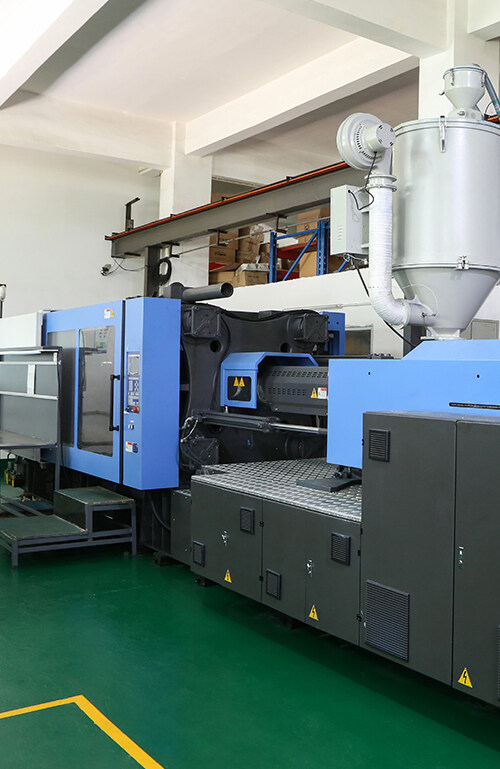Email format error
Email cannot be empty
Email already exists
6-20 characters(letters plus numbers only)
The password is inconsistent
Email format error
Email cannot be empty
Email does not exist
6-20 characters(letters plus numbers only)
The password is inconsistent


Quality and Standards in Chinese Aluminum Manufacturing
Adherence to International Standards
1.1 Importance of International Standards
International standards play a crucial role in ensuring the quality and reliability of aluminum products. Standards such as ISO (International Organization for Standardization), ASTM (American Society for Testing and Materials), and EN (European Norm) set benchmarks for manufacturing processes, material properties, and product performance. Adhering to these standards helps manufacturers meet global expectations, improve product safety, and enhance customer satisfaction.
For aluminum sheet metal fabrication, standards cover various aspects, including material thickness, chemical composition, mechanical properties, and surface finish. These standards ensure that aluminum products meet specific requirements for strength, durability, and appearance, making them suitable for a wide range of applications from aerospace to automotive.
1.2 Compliance by Chinese Manufacturers
Chinese aluminum manufacturers have increasingly aligned their practices with international standards to gain a competitive edge in the global market. Many leading manufacturers are ISO-certified, demonstrating their commitment to quality management systems and environmental practices. For instance, ISO 9001 certification ensures that a company’s quality management system meets international criteria, while ISO 14001 focuses on environmental management.
Additionally, compliance with ASTM and EN standards further validates the quality of aluminum products. Chinese manufacturers often undergo rigorous testing and certification processes to ensure their products meet or exceed these standards. Government regulations and industry associations in China also play a vital role in promoting adherence to international standards, thereby boosting the credibility and trustworthiness of Chinese aluminum products.

Quality Control Measures and Certifications
2.1 Overview of Quality Control in Aluminum Fabrication
Quality control is a fundamental aspect of aluminum sheet metal fabrication, encompassing various processes and techniques to ensure the final product meets specified standards. Quality control measures include inspections, testing, and monitoring throughout the manufacturing process, from raw material selection to final product delivery.
In aluminum fabrication, quality control involves checking material properties such as thickness, tensile strength, and surface finish. Techniques like ultrasonic testing, X-ray inspection, and visual examination are commonly used to detect defects and ensure the integrity of the aluminum products. Implementing strict quality control measures helps prevent defects, reduce waste, and ensure the reliability of the final products.
2.2 Certifications Held by Chinese Manufacturers
Chinese aluminum manufacturers often hold several certifications that attest to their adherence to quality and environmental standards. Common certifications include:
- ISO 9001: This certification signifies that a company’s quality management system meets international standards. It covers all aspects of the manufacturing process, from design to production and customer service.
- ISO 14001: This certification focuses on environmental management, ensuring that manufacturing practices minimize environmental impact and comply with regulations.
- CE Marking: For products sold in the European market, CE marking indicates conformity with European health, safety, and environmental protection standards.
The certification process involves comprehensive audits and assessments by accredited organizations. Achieving and maintaining these certifications demonstrates a manufacturer’s commitment to quality and continuous improvement.
2.3 Implementation of Quality Control Systems
Effective quality control systems are essential for maintaining high standards in aluminum fabrication. Chinese manufacturers employ various methods and tools to ensure quality throughout the production process. Key components of quality control systems include:
- Standard Operating Procedures (SOPs): SOPs outline the steps and procedures for each stage of the manufacturing process, ensuring consistency and adherence to quality standards.
- Inspection and Testing: Regular inspections and testing at different stages of production help identify and address potential issues before they impact the final product.
- Employee Training: Training programs ensure that employees are knowledgeable about quality standards, techniques, and best practices.
By implementing robust quality control systems, Chinese manufacturers can deliver high-quality aluminum products that meet customer expectations and regulatory requirements.
Research & Development and Continuous Improvement Practices
3.1 Importance of R&D in Aluminum Fabrication
Research and development (R&D) play a crucial role in driving innovation and improving aluminum fabrication processes. R&D efforts focus on developing new materials, refining manufacturing techniques, and exploring advanced technologies.
Chinese manufacturers invest heavily in R&D to stay competitive and meet the evolving needs of various industries. Innovations in materials and processes contribute to enhanced product performance, durability, and functionality.
3.2 Continuous Improvement Practices
Continuous improvement methodologies, such as Kaizen and Six Sigma, are widely used in aluminum fabrication to enhance quality and efficiency. These practices involve ongoing efforts to identify and address areas for improvement, streamline processes, and reduce waste.
Key elements of continuous improvement include:
- Regular Audits and Assessments: Conducting regular audits and assessments helps identify areas for improvement and ensure compliance with quality standards.
- Employee Involvement: Engaging employees in improvement initiatives fosters a culture of quality and encourages their contributions to enhancing processes.
- Data-Driven Decision Making: Analyzing data and performance metrics enables manufacturers to make informed decisions and implement targeted improvements.
3.3 Future Trends and Developments
The future of aluminum fabrication in China is shaped by emerging technologies and trends. Innovations such as advanced materials, smart manufacturing systems, and sustainable practices are expected to drive further advancements in the industry.
- Advanced Materials: Research into new aluminum alloys and composites aims to improve product performance and expand applications.
- Smart Manufacturing: The integration of IoT (Internet of Things) and data analytics in manufacturing processes will enhance automation and enable real-time monitoring and optimization.
- Sustainability: Increasing emphasis on eco-friendly practices and energy-efficient manufacturing processes will contribute to a more sustainable industry.
In conclusion, the quality and standards of Chinese aluminum manufacturing are bolstered by adherence to international standards, rigorous quality control measures, and technological innovations. Chinese manufacturers continue to lead the global market by investing in advanced technologies, automation, and continuous improvement practices. Through these efforts, they deliver high-quality aluminum products that meet the demands of various industries and set the stage for future advancements in the field.

